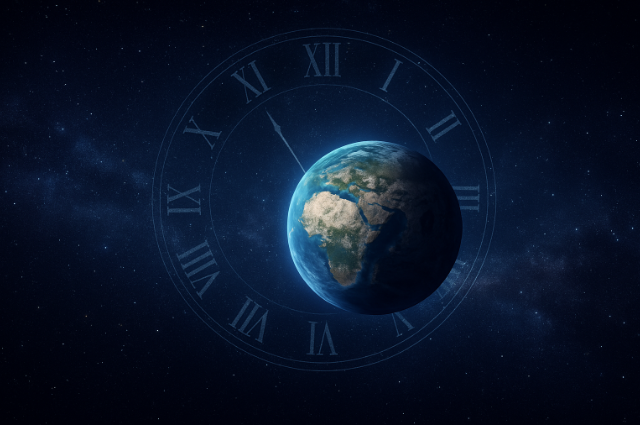
The third planet in the solar system—our Earth—is where we live. But when we say we are “here,” what does “here” actually mean?
To ask, “What percentage is the world at?” is to invite a thought experiment that transcends ordinary measures of time and space. It compels us to evaluate existence on scales so vast that language itself begins to fracture under the weight of cosmic proportion. The concept is not merely numerical; it is philosophical, scientific, cultural, existential, and metaphysical. To measure the "percentage" of the world is to situate humanity, and with it the cosmos, into a temporal context that stretches from the universe's birth to its imagined demise.
The Cosmic Calendar
Carl Sagan’s “cosmic calendar” condenses 13.8 billion years of cosmic history into a single year. The Big Bang bursts forth on January 1. Galaxies form in mid-January. The Milky Way emerges around March, while Earth is only born on September 2. Life appears in late September, and multicellular animals in December. Humanity? We arrive on December 31 at 11:52 p.m. All of recorded human history falls within the last ten seconds of this cosmic year.
Thus, humanity is less than a fraction of a fraction of 1%. Even the very idea of percentage begins to collapse. A percentage assumes a base unit—100—but the universe has no such denominator. If we take the Sun’s main-sequence lifespan (~10 billion years) as the “100,” then, at ~4.6 billion years, we are 46% of the way through. But if we use the lifespan of the universe until heat death, stretching to quadrillions of years, we are barely past 0.00000000000000001%.
Entropy, Extinction, and Human Scales
The Second Law of Thermodynamics states that entropy—the degree of disorder—always increases. Cosmologists describe the universe as still in its “adolescence,” because stars continue to burn and galaxies cluster. Yet in the grand arc of entropy, the majority of time ahead will be dominated by darkness and quiet.
On Earth’s timeline of 4.5 billion years, humans have existed for about 300,000 years—just 0.0067%. Recorded civilisation, only 5,000 years old, is less than 0.1% of our species’ history. If viewed this way, we are both latecomers and possible initiators of futures beyond imagination.
Cultural and Religious Time
Humanity also measures time in cultural and spiritual ways. Hindu cosmology situates us in Kali Yuga, the last age of decline before rebirth—roughly 75% completed. Abrahamic traditions frame time linearly, pointing toward an ultimate “end.” Both models highlight human anxiety about limitation and incompleteness.
Technological narratives echo this tension. If we track humanity from fire to agriculture, agriculture to industry, industry to digital, and digital toward posthuman futures—where are we? Some futurists argue we may be at 1% of our potential, while others suggest we are at 99%, standing before the singularity as either the climax or the beginning.
The Multiverse and Paradox of Percentage
The multiverse theory complicates all such efforts. If our universe is just one bubble among infinite universes, then percentages lose meaning entirely. In infinity, every percentage collapses to zero. Yet from the anthropic perspective—the fact that we exist at all—our time is always 100%. For us, the now is complete.
Thus, we are both 0% and 100%. Infinitesimal and whole. A paradox that reveals how fragile the idea of percentage is when applied to existence itself.
Conclusion
In truth, the universe is not “at” any percentage. It simply is. But asking the question destabilizes complacency and forces perspective. At 0.0000000001%, we feel our smallness. At 99%, we confront the urgency of limited time. At 100%, we shoulder the existential burden of presence itself.
The answer, then, is polyphonic: scientifically close to zero, thermodynamically still young, culturally at the “end,” and philosophically both empty and complete. The very collapse of percentage as a measure reveals a deeper truth—that humans, poised on the edge of time, create metaphors to locate themselves in the infinite silence of eternity.
